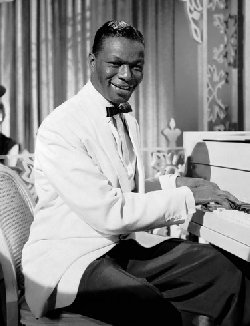- Tim's year-end wrap-up.
 The year 2012 is about to pass into the history books. I don't even think the Ripley people would believe it. The elections obviously commanded our attention, from primaries, to conventions, to debates, and to the final elections. Closely tied to it was the economy, unemployment, energy, and the turmoil in the Middle East. The Summer Olympics in London was a welcome distraction, but it was short lived. As we are nearing the end of the year, I want to reflect on what I personally learned. Think of this as my year-end wrap-up report if you will.
The year 2012 is about to pass into the history books. I don't even think the Ripley people would believe it. The elections obviously commanded our attention, from primaries, to conventions, to debates, and to the final elections. Closely tied to it was the economy, unemployment, energy, and the turmoil in the Middle East. The Summer Olympics in London was a welcome distraction, but it was short lived. As we are nearing the end of the year, I want to reflect on what I personally learned. Think of this as my year-end wrap-up report if you will.
2012 taught me this is no longer my grandfather's United States, or my father's for that matter. In fact, it's a lot different than what I was taught as a lad. It seems the obvious is no longer obvious. Our priorities have changed from what I believe are cultural differences. First, Latinos are now the number one minority, followed by Asians who hopscotched the blacks to the #2 position. Single women now outnumber married women, and gays seem to be more openly accepted. All of this sounds simple, but represents a dramatic change in our demographics and, as such, a change in national attitudes.
Everything seems to be drifting on the wind, including our moral fiber. What was right is now wrong, and vice versa. It would be easy to say the country has become morally corrupt, but who is to judge, the young or the old? Obviously this didn't happen over night. It has been slowly moving in this direction for a long time; e.g., instead of the sanctity of marriage between a man and a woman, we now openly discuss homosexual relationships; instead of celebrating the family unit, it has become splintered; instead of the Baby Boomers retiring as their predecessors did, few can afford to, making for a crowded job market; rewarding incompetence now seems to be a way of life, and; lying and deceit appears to be an acceptable form of behavior as long as the end justifies the means. Such things greatly influence our priorities and behavior.
I learned the division of the country has become even more pronounced along ideological and class lines. We always knew there were differences, but it became glaringly obvious during this election year. The void between left and right has grown to Grand Canyon proportions, with very few moderates remaining to take a stand. Political discourse can be better described as visceral as opposed to intellectual.
Nevertheless, I have learned the country now believes entitlements are a right, not a privilege; the citizens believe a redistribution of the wealth is fair, and; that spending more than you have is a perfectly acceptable form of fiduciary behavior. I admit it took me a long time to figure this out, but I now "get it." In the past, I assumed this would head us down a dangerous path to bankruptcy, but evidently the country is not concerned. Then again, we have always been a nation of reactionaries as opposed to planners.
Perhaps the most notable thing I learned this year was the citizens of this country have become overtly self-aware, meaning a person can separate him/herself as an individual from their environment. We've seen this for many years on the roads as people drive as if they were the only ones on the highway. However, it has become more pronounced in our society and I attribute it primarily to our extensive use of personal technology. We see it in shopping malls and stores where people walk in front of you as you are examining merchandise. They are not interested in what you are doing, only what they personally want to do. This is also becoming more common in business as people lack sensitivity to others working around them, thereby inhibiting harmony, and we also see this in our discourse where we no longer know how to properly carry on an argument. It is no small wonder that "Teabagger" has become a part of our vernacular, even if it is misapplied.
It would be easy to say I learned a lot about the power of the media this year, and how it is an instrument of the government to manipulate the masses, but this has been going on for quite some time. I could also comment how naive the American public has become, that they are lazy and prefer the spin of the media as opposed to checking the facts themselves, but we already knew this.
Despite all of this, I cannot help but wonder if we really are any better than just 50 years ago? Or 100 years for that matter. Sure, the technology has changed a lot, and the world has gotten smaller and more dangerous as a result, but the problems remain essentially unchanged: the world population is still growing too fast, war has certainly not been made extinct, we still suffer with malnutrition and economics, and we still do not have cures for cancer, diabetes, heart disease, and a litany of other diseases. Not to worry though, there is nothing our smart phones cannot overcome for us.
One final note, I would be remiss if I didn't recognize a handful of the people who passed away in 2012, people who helped shape our lives in one way or another:
Neil Armstrong, Peter Bergman, Pedro Borbón, Ernest Borgnine, Robert Bork, Ray Bradbury, Andrew Breitbart, Helen Gurley Brown, Dave Brubeck, Gary Carter, Dick Clark, Gary Collins, Greg Cook, Don Cornelius, Judith Crist, Richard Dawson, Phyllis Diller, Angelo Dundee, Donald "Duck" Dunn, Nora Ephron, Chad Everett, Ben Gazara, Andy Griffith, Larry Hagman, Marvin Hamlisch, Levon Helm, Sherman Hemsley, Celeste Holm, Whitney Houston, Daniel Inouye, Davy Jones, Alex Karras, Herbert Lom, George McGovern, Russell Means, Sun Myung Moon, Oscar Niemeyer, Joe Paterno, Johnny "The Needle" Pesky, Darrell Royal, Warren Rudman, Steve Sabol, Earl Scruggs, Ravi Shankar, Carroll Shelby, Amarillo Slim, Arlen Specter, Chris Stevens, Donna Summer, Jack Twyman, Gore Vidal, Mike Wallace, Andy Williams, William Windom. and Richard D. Zanuck.
If you do not know who some of these people are, you should do yourself a favor and look them up. If you didn't see your name on the list, consider yourself fortunate. I know I do.
Happy New Year everyone!
FADE TO BLACK
Keep the Faith!
Note: All trademarks both marked and unmarked belong to their respective companies.
 Tim Bryce is a writer and the Managing Director of M&JB Investment Company (M&JB) of Palm Harbor, Florida and has over 30 years of experience in the management consulting field. He can be reached at timb001@phmainstreet.com
Tim Bryce is a writer and the Managing Director of M&JB Investment Company (M&JB) of Palm Harbor, Florida and has over 30 years of experience in the management consulting field. He can be reached at timb001@phmainstreet.com
For Tim's columns, see:
timbryce.com
Like the article? TELL A FRIEND.
Copyright © 2012 by Tim Bryce. All rights reserved.
NEXT UP: BREAK TIME - "I'll be back (in 2013)" (Arnold Schwarzenegger)
Listen to Tim on WJTN-AM (News Talk 1240) "The Town Square" with host John Siggins (Mondays, Wednesdays, Fridays, (12:30-3:00pm).
Also look for Tim's postings in the Palm Harbor Patch, The Gentlemen's Association, and throughout the Internet.
 Slavery in the United States was abolished with Lincoln's Emancipation Proclamation which took effect in 1863, but I'm not sure it has completely gone away. Slavery flourished in North America throughout the 17th, 18th and 19th centuries where it was an important part of the country's economic system. Under the legendary Sugar-Rum-Slave triad; sugar was shipped from the Caribbean to Europe where it was distilled into rum, profits from this was then used to ship merchandise to West Africa where it was traded for slaves, which were sent to the Caribbean where they were sold as field hands for the sugar plantations, others were used as indoor servants.
Slavery in the United States was abolished with Lincoln's Emancipation Proclamation which took effect in 1863, but I'm not sure it has completely gone away. Slavery flourished in North America throughout the 17th, 18th and 19th centuries where it was an important part of the country's economic system. Under the legendary Sugar-Rum-Slave triad; sugar was shipped from the Caribbean to Europe where it was distilled into rum, profits from this was then used to ship merchandise to West Africa where it was traded for slaves, which were sent to the Caribbean where they were sold as field hands for the sugar plantations, others were used as indoor servants.

 Recently I was asked to give a couple of presentations at a District meeting of the
Recently I was asked to give a couple of presentations at a District meeting of the 


 When we started our company back in 1971, we needed some basic office equipment, such as filing cabinets, typewriters, etc. Unlike today, there were no personal computers or smart phones. Access to computers were by dumb terminals and printers were quite large to accommodate massive printouts. For all practical purposes small businesses had little use for computers at the time, primarily due to the excessive costs associated with them. Our most prized equipment were two IBM "Selectric" typewriters and a Remington Rand adding machine, Model 41013-10. The typewriters were replaced many times over the years, and of course, we implemented computer equipment in the office back in 1980. However, it was our adding machine which became the workhorse of our office which we've used for over 40 years now.
When we started our company back in 1971, we needed some basic office equipment, such as filing cabinets, typewriters, etc. Unlike today, there were no personal computers or smart phones. Access to computers were by dumb terminals and printers were quite large to accommodate massive printouts. For all practical purposes small businesses had little use for computers at the time, primarily due to the excessive costs associated with them. Our most prized equipment were two IBM "Selectric" typewriters and a Remington Rand adding machine, Model 41013-10. The typewriters were replaced many times over the years, and of course, we implemented computer equipment in the office back in 1980. However, it was our adding machine which became the workhorse of our office which we've used for over 40 years now.
 I am always surprised by the vast majority of people who are content operating in an autopilot mode; you know what I mean, people who are more content following the tedium of routine as opposed to thinking for themselves. We see it everyday as we commute to/from work where people stare blankly into space, we see it in the workplace where people want to go on automatic as opposed to thinking for themselves, we see it when people watch television like zombies, and we readily saw it in the last election where people willfully embraced the gospel according to the press as opposed to thinking for themselves. It's amazing we can accomplish anything since people do not wish to exercise their minds and exceed the status quo. Let me give you an example.
I am always surprised by the vast majority of people who are content operating in an autopilot mode; you know what I mean, people who are more content following the tedium of routine as opposed to thinking for themselves. We see it everyday as we commute to/from work where people stare blankly into space, we see it in the workplace where people want to go on automatic as opposed to thinking for themselves, we see it when people watch television like zombies, and we readily saw it in the last election where people willfully embraced the gospel according to the press as opposed to thinking for themselves. It's amazing we can accomplish anything since people do not wish to exercise their minds and exceed the status quo. Let me give you an example.
 They began to trickle back into the area in early October, but now the migration is in full bloom with the various trailer courts filling up down here in Florida. I am, of course, talking about "Snowbirds," retirees who are escaping the chilly north in favor of a warmer climate for the winter. We rely on the snowbirds heavily as they greatly support our economy through tourism. They may clog the roads and restaurants, speak with some strange dialects, but we welcome them warmly this time of year ("Don-cha-know").
They began to trickle back into the area in early October, but now the migration is in full bloom with the various trailer courts filling up down here in Florida. I am, of course, talking about "Snowbirds," retirees who are escaping the chilly north in favor of a warmer climate for the winter. We rely on the snowbirds heavily as they greatly support our economy through tourism. They may clog the roads and restaurants, speak with some strange dialects, but we welcome them warmly this time of year ("Don-cha-know").
 It's been about a month since the election and the dust has finally settled. I believe we are all glad the negative television commercials are gone, as well as the obnoxious lawn signs, but there are a lot of people who miss the action and are beginning to exhibit withdrawal symptoms. Whereas young people were mostly apathetic during this electoral cycle, older people and party loyalists were transfixed on any news pertaining to the campaigns, including presidential, congressional, and local. This resulted in a windfall for the media. Over $1 billion was spent on television advertising alone for the presidential race, not to mention radio, newspaper, billboards, telephone calls, and Internet advertising. In all, we set another record in terms of campaign spending, but was it really worth it?
It's been about a month since the election and the dust has finally settled. I believe we are all glad the negative television commercials are gone, as well as the obnoxious lawn signs, but there are a lot of people who miss the action and are beginning to exhibit withdrawal symptoms. Whereas young people were mostly apathetic during this electoral cycle, older people and party loyalists were transfixed on any news pertaining to the campaigns, including presidential, congressional, and local. This resulted in a windfall for the media. Over $1 billion was spent on television advertising alone for the presidential race, not to mention radio, newspaper, billboards, telephone calls, and Internet advertising. In all, we set another record in terms of campaign spending, but was it really worth it?
 There's only one other month I dislike more than
There's only one other month I dislike more than  I want to speak for a moment on the beauty of women. No, I'm not a cosmetologist, dermatologist, hair dresser, or fashion coordinator, just an ordinary heterosexual with a fondness for the opposite sex. I always knew there were differences between boys and girls, but this didn't become obvious to me until I entered junior high school whereupon I noticed the girls were beginning to apply cosmetics, change their hair, and wear more fashionable clothes. I guess this marked the beginning of our mating rituals as the boys began to sit up and take notice.
I want to speak for a moment on the beauty of women. No, I'm not a cosmetologist, dermatologist, hair dresser, or fashion coordinator, just an ordinary heterosexual with a fondness for the opposite sex. I always knew there were differences between boys and girls, but this didn't become obvious to me until I entered junior high school whereupon I noticed the girls were beginning to apply cosmetics, change their hair, and wear more fashionable clothes. I guess this marked the beginning of our mating rituals as the boys began to sit up and take notice.
 I was recently invited to give a talk at a business conference designed to help high school seniors in our county who have an interest in pursuing a business career. Specifically, I was assigned two sessions to describe what the young person should expect as they make the transition into adult life which was based in large part on my book,
I was recently invited to give a talk at a business conference designed to help high school seniors in our county who have an interest in pursuing a business career. Specifically, I was assigned two sessions to describe what the young person should expect as they make the transition into adult life which was based in large part on my book,